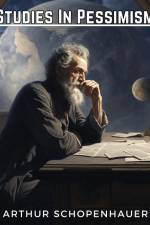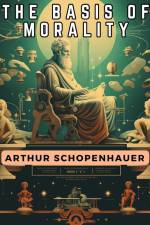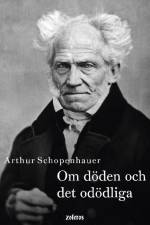von Arthur Schopenhauer
22,00 €
ARTHUR SCHOPENHAUERSTUDIES IN PESSIMISM: ESSAYS A collection of essays from one of the great philosophers of the modern era, Arthur Schopenhauer. The German thinker contemplates subjects such as psychology, immortality, vanity, suffering, education, women, and suicide.Arthur Schopenhauer is an entertaining author to read, easy to understand, with a sly, dry wit. No need for footnotes or explanations of tricky terms, Schopenhauer's prose style is refreshingly clear. Arthur Schopenhauer was born in 1788 (on February 22nd) in Gdansk and died in 1860 in Frankfurt (on September 20th). Schopenhauer is known for his major work The World As Will and Idea, his philosophy of transcendental idealism, his studies of pessimism, his collections of essays and aphorisms, his incorporation of Eastern religion and metaphysics in his philosophy, and his impressive posthumous in¿uence on philosophers such as Friedrich Nietzsche, Ludwig Wittgenstein, Henri Bergson and Oswald Spengler, psychologists such as Otto Rank, Carl Jung and Sigmund Freud, and a host of writers and artists such as Samuel Beckett, Marcel Proust, Rainer Rilke, André Gide, Hugo von Hoffmansthal, Stéphane Mallarmé, W.B. Yeats, Italo Svevo, Ivan Turgenev, Robert Musil, Jorge Borges, George B. Shaw, Karl Kraus, J.-K. Huysmans, Edgar Allan Poe, August Strindberg, Guy de Maupassant, Frank Wedekind, Antonin Dvorak, Arnold Schönberg, Gustav Mahler, Charles Baudelaire, Jacob Burckhardt, George Gissing, Emile Zola, Richard Wagner, Sergei Prokoviev, Leo Tolstoy, Hermans Melville and Hesse, and Thomases Mann and Hardy. European Writers Series. Illustrated. Includes a 16-page biographical sketch of Schopenhauer, and an additional introduction to his work. 140pp. www.crmoon.com






























